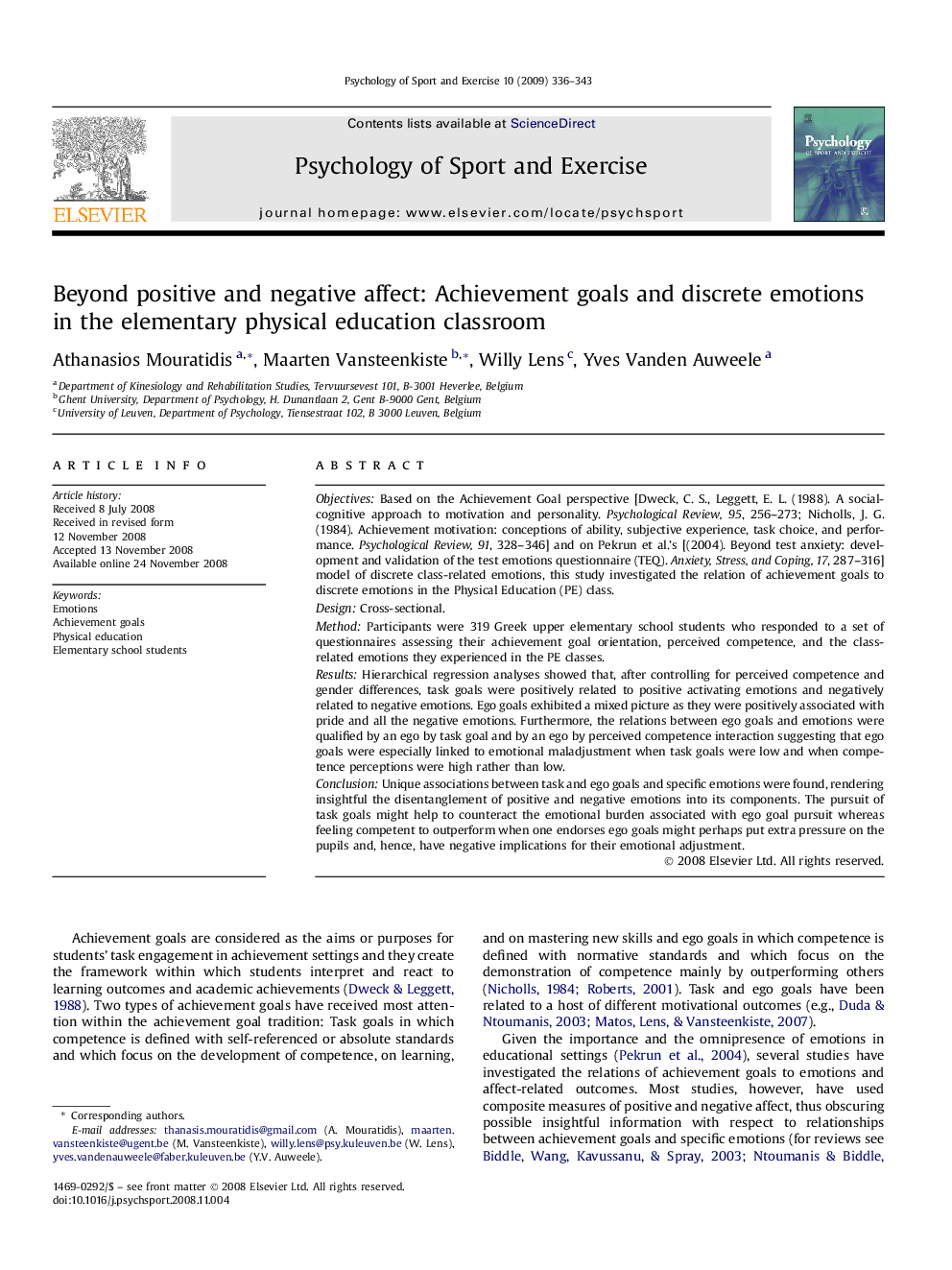| کد مقاله | کد نشریه | سال انتشار | مقاله انگلیسی | نسخه تمام متن |
|---|---|---|---|---|
| 894865 | 1472147 | 2009 | 8 صفحه PDF | دانلود رایگان |

ObjectivesBased on the Achievement Goal perspective [Dweck, C. S., Leggett, E. L. (1988). A social-cognitive approach to motivation and personality. Psychological Review, 95, 256–273; Nicholls, J. G. (1984). Achievement motivation: conceptions of ability, subjective experience, task choice, and performance. Psychological Review, 91, 328–346] and on Pekrun et al.'s [(2004). Beyond test anxiety: development and validation of the test emotions questionnaire (TEQ). Anxiety, Stress, and Coping, 17, 287–316] model of discrete class-related emotions, this study investigated the relation of achievement goals to discrete emotions in the Physical Education (PE) class.DesignCross-sectional.MethodParticipants were 319 Greek upper elementary school students who responded to a set of questionnaires assessing their achievement goal orientation, perceived competence, and the class-related emotions they experienced in the PE classes.ResultsHierarchical regression analyses showed that, after controlling for perceived competence and gender differences, task goals were positively related to positive activating emotions and negatively related to negative emotions. Ego goals exhibited a mixed picture as they were positively associated with pride and all the negative emotions. Furthermore, the relations between ego goals and emotions were qualified by an ego by task goal and by an ego by perceived competence interaction suggesting that ego goals were especially linked to emotional maladjustment when task goals were low and when competence perceptions were high rather than low.ConclusionUnique associations between task and ego goals and specific emotions were found, rendering insightful the disentanglement of positive and negative emotions into its components. The pursuit of task goals might help to counteract the emotional burden associated with ego goal pursuit whereas feeling competent to outperform when one endorses ego goals might perhaps put extra pressure on the pupils and, hence, have negative implications for their emotional adjustment.
Journal: Psychology of Sport and Exercise - Volume 10, Issue 3, May 2009, Pages 336–343